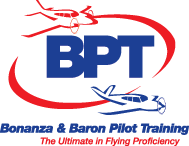
What is the Flight Insructor’s Primary Responsibility?
By Gary Reeves, ATP, Master CFI, CFII, MEI
I was working with a new CFI candidate today. I asked him what the primary responsibility of the flight instructor was. He gave me a very common, and totally wrong, answer. In fact, I think this misconception is widely spread and is the biggest problem in flight training today. His answer was, “…to teach the student to meet the minimum practical test standards.”
What’s the problem? Teaching to the minimums, trying to do it cheap, and putting the emphasis on things like how to do a steep turn to PTS standards are the biggest reasons why GA aviation continues to have weekly accidents and why the news media depicts how dangerous flying is to their viewers. Flying isn’t dangerous, but poorly trained “minimum” pilots are.
So, what is the primary responsibility of an instructor? Teaching the student how to make good aeronautical decisions. It is more important that a student know when it is safe to fly than to start a trip without realizing how risky it is. Airplanes continue to fall short of an airport because of fuel starvation! This is not a PTS problem, it’s a bad aeronautical decision-making problem.
When you are with a student, do you fill up on your credit card? Or do you decide to go home on 1/2 tanks, so the flight school will buy the gas? When you are low on money and the weather is marginal, do you still fly with the student? If you’re running late for your next appointment, do you taxi to the ramp fast and shut down the aircraft without a checklist? I have in the past and I know most flight instructors have taken these or other similar shortcuts. When we do this, what we are really showing our students is, that if the weather is bad, they can stay in the traffic pattern. Or these other poor decisions: low on gas, it’s better to fly home and save the money or it is okay to fly if they really need to.
It’s far safer to send a pilot out into the world with some great examples from you, a professional pilot, that demonstrate chances aren’t worth taking. Of course, the PTS is needed in training as well, and useful in many ways. Let me ask you one final question. Three years from now, at a mountain airport in marginal night VFR, do you want your former student to have gotten their ticket in 40 hours? Or to ask themselves what is worth wrecking the plane and dying for? Wouldn’t it be better if they cancelled the flight because of the example you provided?
What do you think?



